| Tip You can see the date and time when a policy was last edited in the Last Edited On column in the Policies list. |
Follow the instructions below to edit a policy in the Data Center Console.
1. In the Main menu, click Policy.
2. Find the policy you want to edit in the Policies list, and then click the Edit icon in the Actions column for this policy.

| Tip To find a policy, you can use the Basic or Advanced List Filter. See Monitor policies in DCC. |
| Note You can also use the Bulk Edit function. See Bulk Editing below. |
3. The Edit Policy window will open.
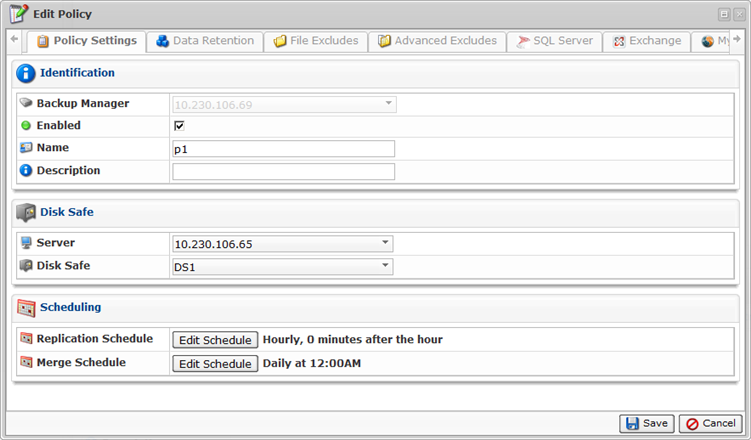
The following tabs are available for editing:
Policy Settings tab
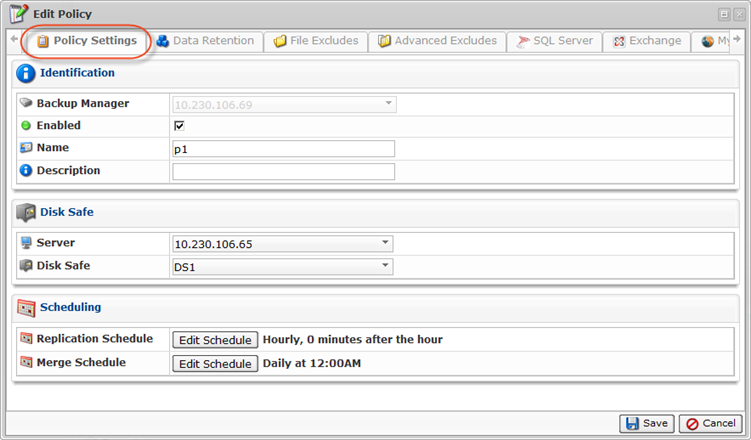
This tab allows you to change the following settings:
- Backup Manager
- Enabled
- Name
- Description
- Server
- Disk Safe
- Replication Schedule
- Merge Schedule
The options are described in Create policies in DCC.
Data Retention tab
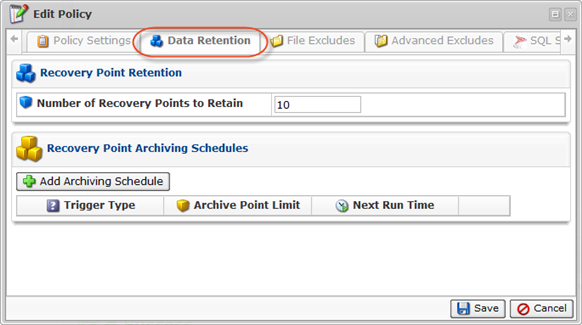
This tab allows you to set the Retention rules and define the Archiving schedule.
File Excludes tab
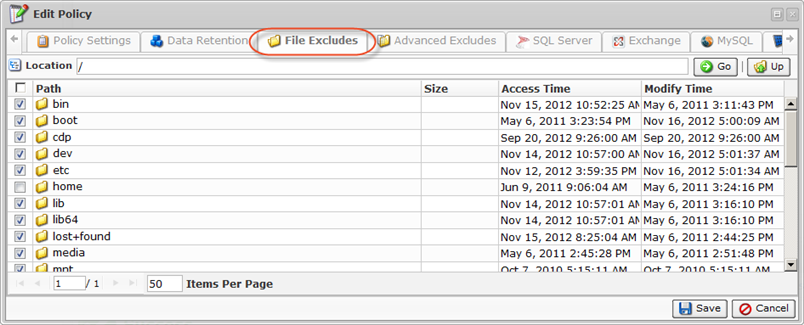
This tab allows you to select the files you want to include or exclude from the Replication.
See Exclude files and folders in DCC.
Advanced Excludes tab
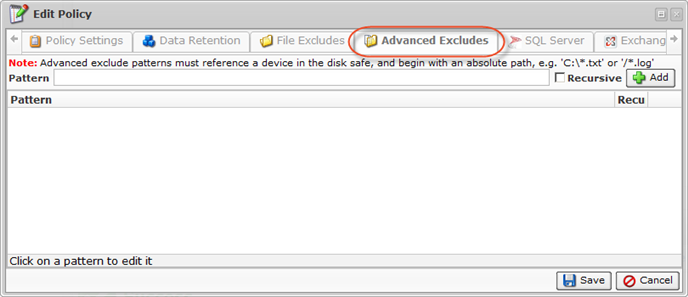
This tab allows you to define patterns according to which files will be excluded from the Replication.
See Exclude files and folders in DCC.
SQL Server tab
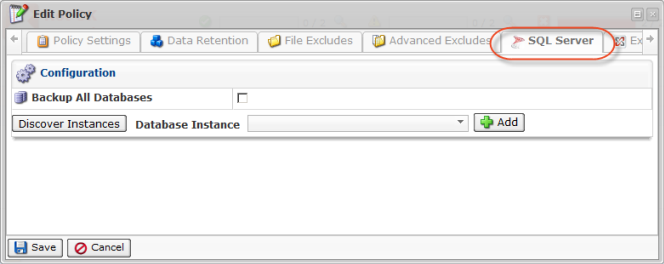
This tab allows you to add Database Instances to the policy. These options are described in Add a MySQL instance to a policy.
Exchange tab
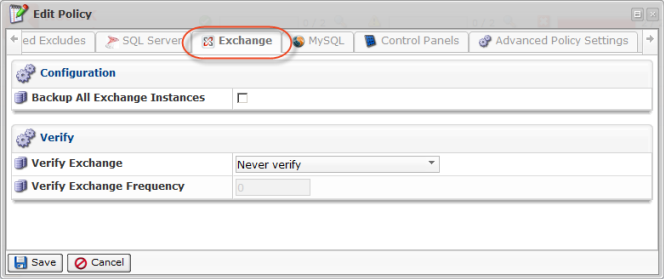
This tab allows you to configure an Exchange Instance for the Policy. These options are described in Configure an Exchange instance.
MySQL tab

This tab allows you to add a MySQL Instance to the Policy. These options are described in Add a MySQL instance to a policy.
Control Panels tab
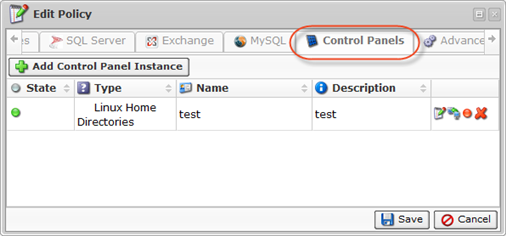
This tab allows you to add a Hosting Control Panel instance to the Policy.
See Add a control panel instance in DCC.
Advanced Policy Settings tab
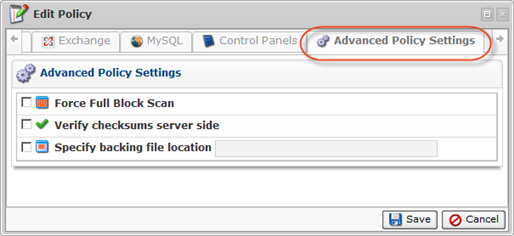
This tab allows you to change advanced Policy settings.
See Create policies in DCC.
4. Click Save to apply the changes.

The changed options will be shown in the Policies list.
Bulk Editing
Using the "Edit Selected" function, you can edit multiple Policies at once. The same values will be set for all selected items. You can use Bulk Editing even if the Policies have different properties. Follow the instructions below to edit several Policies at once.
1. Select several Policies by selecting the check-boxes in the first column of the "Policies" list and clicking "Edit Selected."

2. The "Edit Policy" window opens.
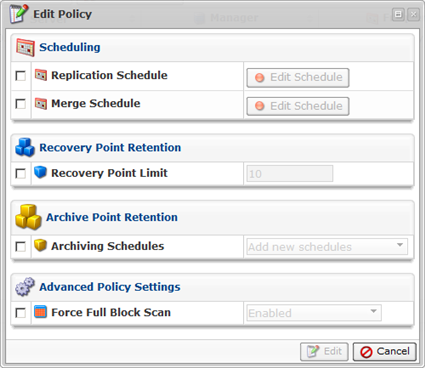
The following parameters can be edited:
Scheduling
- Replication Schedule - This option allows you to set the Replication schedule. See Editing Replication Schedule below.
- Merge Schedule - This option allows you to set the Merge schedule. See Editing Merge Schedule below.
Recovery Point Retention
- Recovery Point Limit - Enter a value in this field to define the "Recovery Points Limit" according to the Volume's Maximum Allowed Archive Retention. When the number of created Recovery Points exceeds the limit, they will be merged.
Archive Point Retention
- Archiving Schedule - This option allows you to set the Archiving schedule.
Here you can select from the following variants in a drop-down menu:- Add New Schedule - Creates a new Archiving schedule. Several different schedules (for example, hourly, daily, weekly) can be applied at the same time.
- Replace Existing Schedule - Replaces existing schedules with created ones.
- Remove All Schedules - Removes all schedules.

Advanced Policy Settings
- Force Full Block Scan - A Full Block Scan compares the MD5 sum of all allocated blocks to perform a backup and synchronize Backup Manager. Enable this option to start a Full Block Scan each time the Replication is performed.
3. Click "Edit" to apply changes to all selected Policies at once.
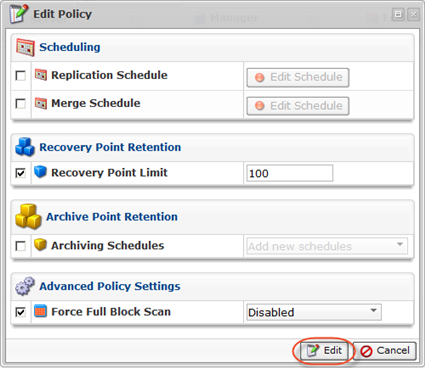
4. If all Policies were edited successfully, the following indicator will appear:

5. The changed options will be shown in the "Policies" list.
Editing Replication Schedule
1. To start editing the Replication schedule, select the corresponding check-box and click "Edit Schedule."
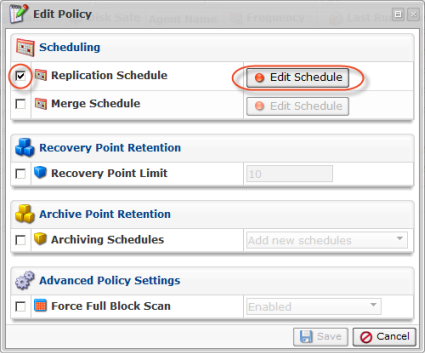
2. Select the Replication frequency from the drop-down menu.
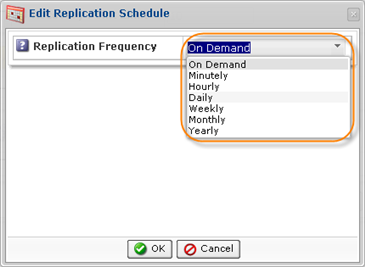
The following options are available:
- On Demand
- Minutely
- Hourly
- Daily
- Weekly
- Monthly
- Yearly
3. Specify the exact time for the Replication to be performed and click "OK."
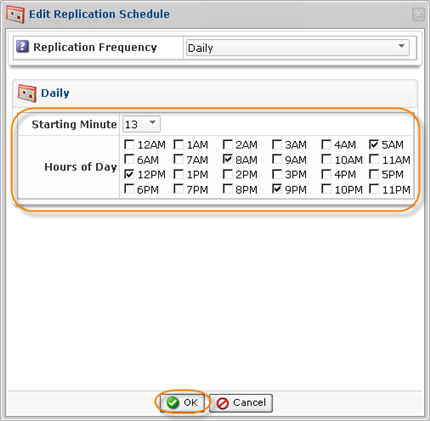
4. The schedule is defined (the indicator turns green). Click "Edit" to save the changes.
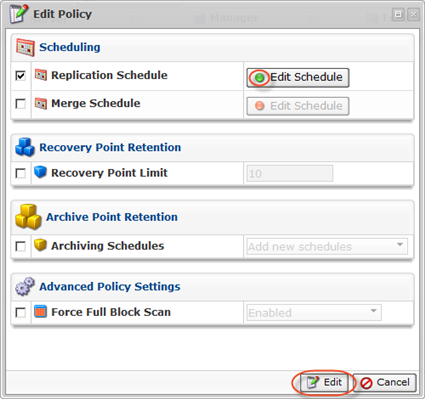
Editing Merge Schedule
1. To start editing the Merge schedule, select the corresponding check-box and click "Edit Schedule."
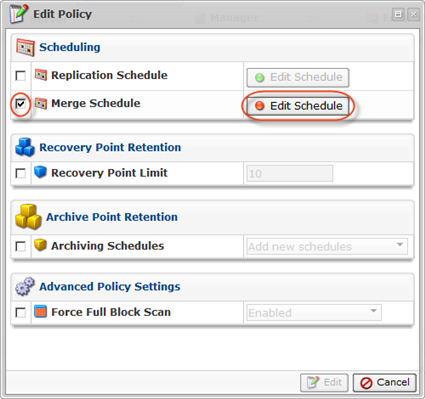
2. Select the Merge frequency from the drop-down menu.
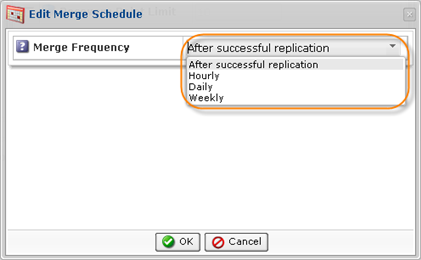
The following options are available:
- After successful replication
- Hourly
- Daily
- Weekly
3. Specify the exact time of the Merge and click "OK."
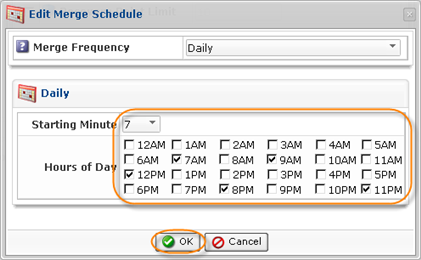
4. The schedule is defined (the indicator turns green). Click "Edit" to save the changes.
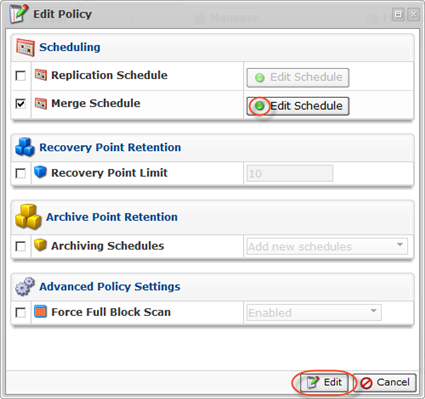
You can also edit Policies using the "Policies" tab of the Server "Details" Pane. This screen provides the same functionality as the main "Policies" screen.
